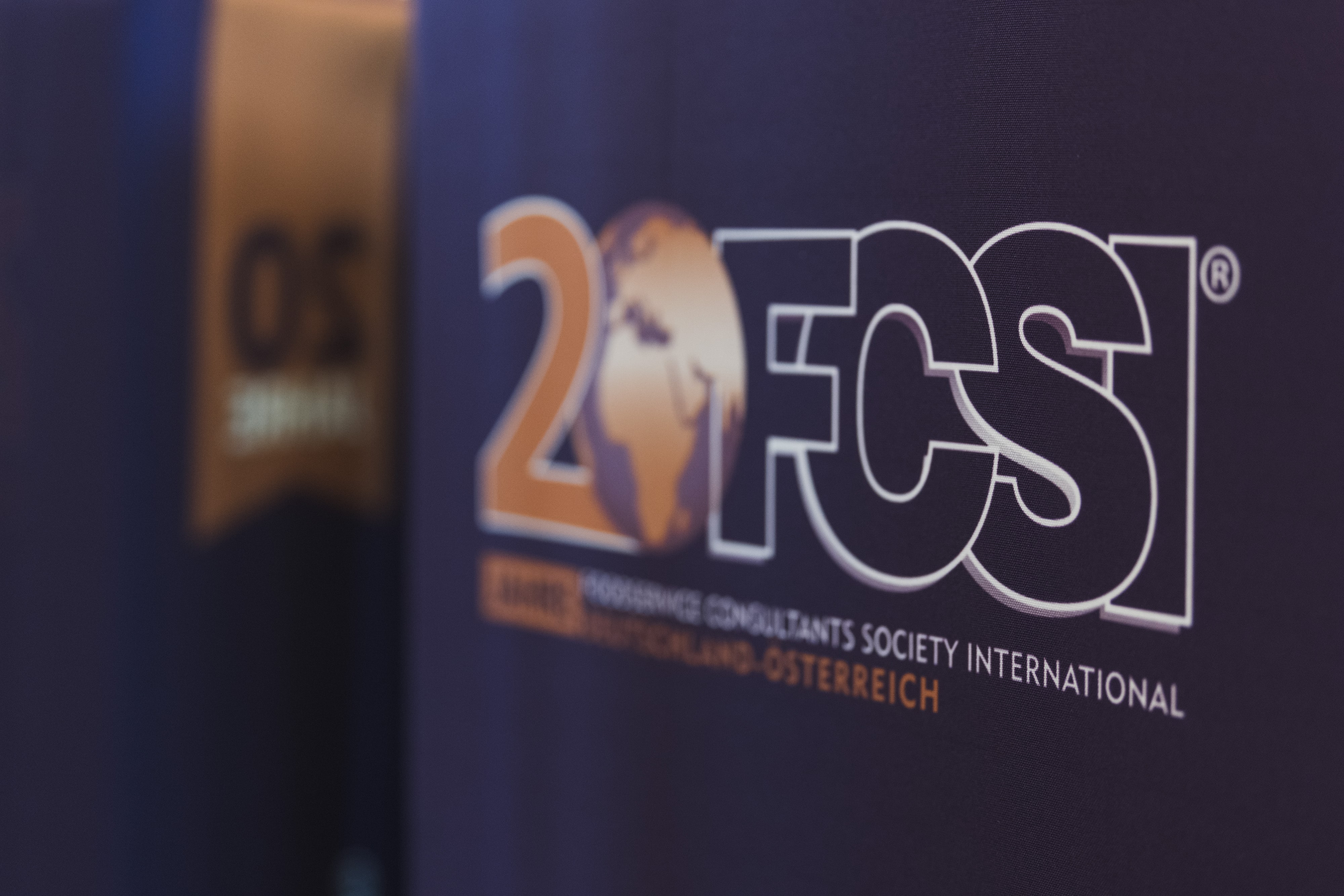
Last week, FCSI Germany-Austria celebrated its 20-year anniversary as a country unit in style with a congress, inspirational local tours and a party in Merano, South Tyrol. Bettina von Massenbach FCSI tells Michael Jones why the event was so special and why there was just as much a focus on networking, welcoming new members and building for the future as there was on celebrating past achievements.
and why there was just as much a focus on networking, welcoming new members and building for the future as there was on celebrating past achievements.
Why was it important to the FCSI Germany-Austria unit to celebrate its 20-year anniversary?
Bettina von Massenbach FCSI: It’s always important to celebrate birthdays! We need to see each other. A network needs physical interaction to exchange where you can assist and help each other. This event was a great mixture of networking and celebrating.
Thursday night was about welcoming old friends and for the board to meet and welcome new members. On Friday we hosted tours to several hotel destinations, a South Tyrolean vineyard and the Messner Mountain Museum Firmian, where we had some really nice food and – because of the small group sizes – we could talk to each other and get some great interaction. It made for some really fun networking.
On Friday we had the members assembly, where we thanked Hildegard Dorn-Petersen FCSI and Roberto Assi FCSI, who are standing down from the FCSI Germany-Austria board this year, to be succeeded by myself and Patrick Hoffman, respectively. There will also be elections next year for the full board.
What makes German-Austria a successful unit?
Two years ago, at our last event in Munich we had 100 people attending. This year in Merano we had 180 – we almost doubled our attendance numbers within two years. People are happy with what has been achieved.  The unit is in really good shape. We’re moving things forward and have a really great combination of members as well as an amazing president in Frank Wagner FCSI.
The unit is in really good shape. We’re moving things forward and have a really great combination of members as well as an amazing president in Frank Wagner FCSI.
Why did you choose Merano, South Tyrol, to the host the anniversary event?
It’s a stunning location. Having the event in Merano gave us the opportunity to step back in order to get new ideas and inspiration. South Tyrol is one of the most successful areas for tourism in Europe. Everybody can learn from this area – they are so professional there. They’re not trying to change things too quickly – they are aware that have to take the local workforce with them as they progress. Three years ago there were only one or two five-star hotels in the region, now I believe there are more than 30. In 2018 South Tyrol counted one million more overnight stays than in the year before.
Talk me through the format of the event. Was there a theme to the event?
The theme of the congress, which was a major part of the whole event, was ‘In der Ruhe liegt die Kraft für die Veränderung’: the power for change comes from calm. We are aware that sometimes we need to slow down in order to take stock and make changes for the future ahead.  We had some fantastic keynote speakers at the congress, including the mountaineer Tamara Lunger, who is from Bolzano in South Tyrol. At 23, she became the youngest female to have reached the main summit of the Lhotse mountain in Tibet. In 2015 she abandoned her attempt to climb the first winter ascent of Nanga Parbat [nicknamed “Killer Mountain” for its high number of climber fatalities] in the Himalayas. She had to give up just 70m from the summit. Why? Because she would have died if she had carried on. Her story was unbelievable.
We had some fantastic keynote speakers at the congress, including the mountaineer Tamara Lunger, who is from Bolzano in South Tyrol. At 23, she became the youngest female to have reached the main summit of the Lhotse mountain in Tibet. In 2015 she abandoned her attempt to climb the first winter ascent of Nanga Parbat [nicknamed “Killer Mountain” for its high number of climber fatalities] in the Himalayas. She had to give up just 70m from the summit. Why? Because she would have died if she had carried on. Her story was unbelievable.
We also heard from Anselm Bilgri, who had been a monk in Bavaria for 30 years before leaving to become a consultant. He talked to us about the power and importance of relaxation. He was inspirational.
What was the highlight of the event for you?
The congress was a real highlight for me, but also later that night we had a fantastic, black-tie dinner. Theodor Falser, who is chef de cuisine at the Johannesstube restaurant at Engel Gourmet & Spa in South Tyrol – and who also presented at the 2018 FCSI EAME Conference in Rotterdam – served us a lovely meal.
Why is the future bright for FCSI Germany-Austria?
It’s bright because we have people in the unit who are a great combination of different industries and skills. Everyone brings their own strengths to the network. We create a great atmosphere and that makes it really special.
Michael Jones
